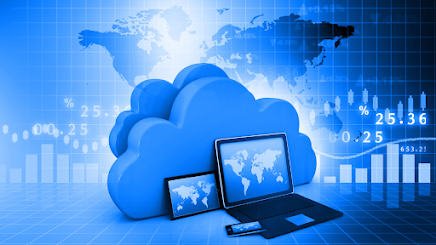The digital landscape of businesses is constantly evolving. Amidst this transformation, one crucial debate that businesses often find themselves entangled in is the choice between cloud servers and traditional servers. Both come with their own sets of advantages, but how do they stack up against each other? Let's delve deep into their comparative analysis.
### **1. On-Demand Provisioning and Autoscaling**
- **Cloud Servers:** One of the standout features of cloud servers is on-demand provisioning. Need resources? Get them almost instantly. Additionally, autoscaling ensures resources adjust automatically based on the demand, ensuring efficiency and cost-effectiveness.
- **Traditional Servers:** They come with limitations. Provisioning isn’t as swift, and scaling up or down isn't straightforward. Upfront investments in resources are essential, often leading to resource underutilization.
### **2. Decoding the Cost Factor**
- **Cloud Servers:** The pay-as-you-go model is a game-changer. Pay only for what you use, say goodbye to upfront hefty investments, and significantly reduce the risks of overprovisioning.
- **Traditional Servers:** The initial costs can be daunting. Upfront investments in hardware, software, and other essentials are mandatory. Over time, this can lead to high costs, especially if resources aren’t fully utilized.
### **3. Maintenance and Hardware Lifecycle**
- **Cloud Servers:** Maintenance woes? Not here. Cloud providers shoulder the responsibility of hardware maintenance and upgrades, allowing businesses to focus on their core operations.
- **Traditional Servers:** The onus of hardware maintenance and periodic upgrades falls on the business. This not only demands time but also results in added expenses.
### **FAQs:**
**Q1:** What's the primary advantage of autoscaling in cloud servers?
**A:** Autoscaling adjusts resources automatically based on demand, ensuring businesses only pay for what they use, leading to cost savings and improved efficiency.
**Q2:** Why might some businesses prefer traditional servers despite the upfront costs?
**A:** Some businesses prioritize having direct control over their infrastructure or have specific compliance and regulatory considerations that make traditional servers more appealing.
**Q3:** Do cloud servers eliminate all hardware concerns for businesses?
**A:** While cloud servers shift the bulk of maintenance and upgrade responsibilities to cloud providers, businesses should still be proactive in understanding the underlying infrastructure to ensure optimal performance.
### **Conclusion: The Cloudy Sky or the Traditional Horizon?**
At the crossroads of technological advancement, the choice between cloud servers and traditional servers is pivotal. Cloud servers undoubtedly offer flexibility, scalability, and are cost-effective. But traditional servers have their niche, offering more control to businesses. It's not about which is superior but rather, which aligns best with a business's needs, goals, and operational blueprint. As the digital realm grows, it's imperative for businesses to assess, re-assess, and make informed decisions.
